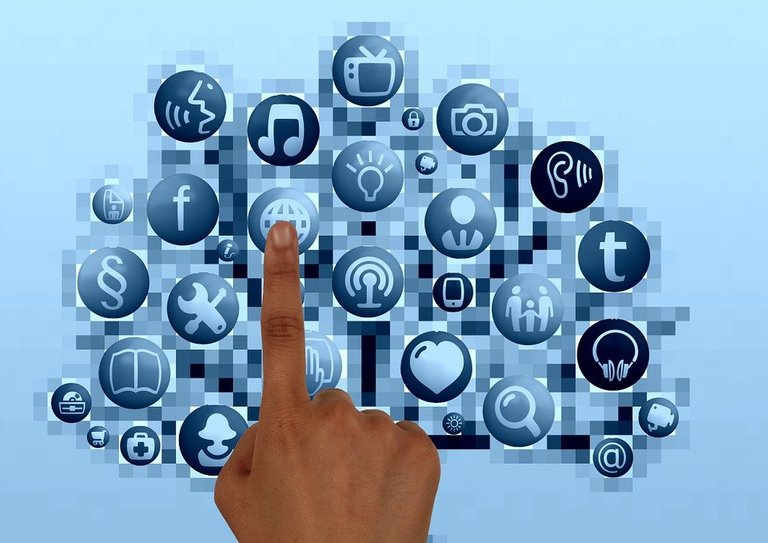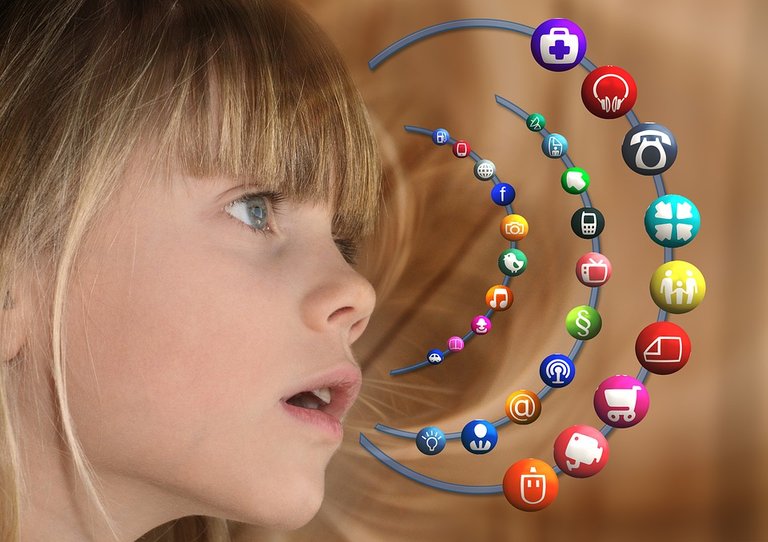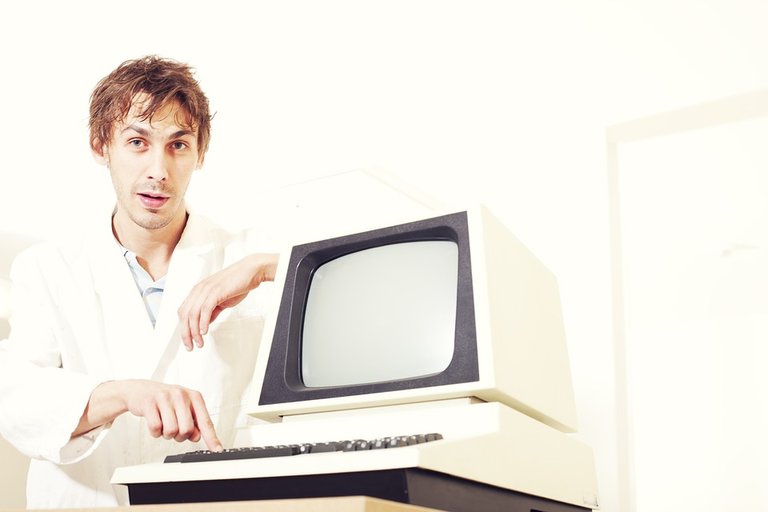For years it has been said: Software is eating the world alive. Today, more than particularly, as we can barely imagine our lives without software.

The invasion technology performed over our public and private life was a long history. By the end of the 90s we started having DSL, cable and other weird things like Millicom (a major communications company down here in Latin America).
Then several major league players joined the market: Microsoft offered us an e-mail system totally accessible from the web interface in the shape of Hotmail, Yahoo! offered us online games where we could waste perfectly good hours of sleep playing Backgammon matches against complete unknowns (I still preferred MSN Gaming Zone, zone.com, now it is a silly site contrasted against "modern" games).
And this is how us, the so-called millennials, grew up used to dump certain parts of our lives into Internet, entertainment and communications, to the point that it defines this group. Millennial became a word that defined the relationship we have with technology and communication, it is not a simple age range.
Yet, this guy is overdoing it a bit... Pokemon Go?! FFS! GET A LIFE!!!

This first revolution of interconnected software had its equivalent of the Steam Engine in the globalization of Internet and computers for personal use (giving birth to what we only know as: PC). Economically speaking, they became so cheap that computers that only certain major countries could afford now were easily bought by almost any family.
Do not ever forget to tap your pocket and remember that the little device in there that you use to play Candy Crush has more computational power than the computers used to put the man in the moon, not to mention that is has a WAY BETTER network connection.
Forwarding into contemporary times we find out that, today, every big enterprise is tech related, a statement I will dare to defend right now.
To begin with: There's two ways to understand this statement.
One
The majority of the big companies are companies that "model themselves out" as tech companies. Just consider any stock market, check the companies with largest values... You'll see what I mean. The largest ones you may find are software related: Apple, Amazon, Google,Microsoft, Facebook.
Two
The other way of understand what I am meaning is: Money
This is a daring proposal: Banks are technology companies that apply it to finances, health insurances are tech companies dedicated to rip uss off assure us that we get the best treatment whenever it is needed. You can apply that formula to almost every company, with no technology -software- developed for their purposes they would not work!
Now, we need to look into the future. Since we already had one: Will we be able to predict the next technologic revolution?
What is next? If software is eating the world alive. We depend on interconnected software to exist and it too over our lives, what will the next revolution's motto be? What will the software eat once it has finished dining the world? The answer is:
SOFTWARE!
Yes, I believe that the second coming of the software revolution will come with cannibalization included. Software will feast on software.

Allow me to deepen this:
The internal combustion engine of this technologic revolution comes by the hand of blockchains, massive mobile Internet and interconnected devices such as domotics, smartphones, the Internet of Things and the smart-whatevers (even toasters!).
Just like high speed Internet and cheap microchips in the 90s enforced the development of desktop software and the first *.com websites, today the new ingredients in the Hardware Universe are leaving a footprint in the software we use today.
By interconnecting everything, software is no longer defined as an added value, but it adds value to other softwares; just as you may see with an opensource STEEM that is free, while the value is added by countless apps.
Apps, apps for everything. Some people lack of memory and rely on apps to remember everything: From the phone app that memorizes every single phone number we need (we we used to know them by heart) to the ones that store our passwords "on the cloud".
Appstores for any device, that contribute with their listings to personalize our phone and computer. That have as sole purpose one thing: Sell us pieces of software. This even goes further in games! Where you used to buy a full game 25 years ago, today you buy a "basic" pack and then you've the option to download mods, expansions and "chapters" for a modest fee.
Appstores: Software that manages software and feed of them. Cannibal Software.

Where will all this lead to?
Evolution of Interfaces.
We come from a command line interface such as the old DOS (or, GNU, if you prefer), evolving into a Graphic interface that now evolved into voice command ones like Siri, Alexa and Morgana. The human input is not as needed as it used to be.
Clean APIs are needed for this, where the use is so simple, anyone is able to exploit it for their purposes. Clean, tidy APIs allows programmers and users from all around the globe to develop software, that feeds software. Eventually, APIs will become a standard for all apps/programs. Then, all we'll need is an AI that will combine an infinite amount of random functions and test those combinations with OTHER AIs: Discarding the ones that are useless.
Software that runs on software to feed software that distributes software that adds value to the software as people use it; critically tested by extensive AIs that compare the needs with the program's output.
A cannibalistic software cycle, designed to please us.

There will be a point where being a programmer will be looked at like we as see a chimney-sweeper today.
Remember me in 10-20 years, when this finally happens.
Programing is about to be one of the most complex tasks in the world.. as you said will be software running software.. that tasks will be done by the most amazing machines ever build by the men. Quantum computers... but the programing of quantum computers is way more complex than the normal binary and conventional computers.. the understating of quantum psisics is essential on the next era of tecnology and AI.
Scientists can that the quantum leaf, and will lead in the next decades to the singularity, when machines will be better tamhan humans in almost everything. Great post i am looking for interesting articles to build a solid blog .. upvote and following!!!!
I like your theory and somehow I agree it. But there are few mentions:
See you in 2037. :)
Yet, what is "creativity" other than putting together things in a random manner while finding out that "it works"?
This preselection of "the apps that work" is already working at the appstores, where common consensus make ones prevail over other ones.
If You talk about dummy apps that shows some info saved into a tiny DB or Jason file, I agree with you, there is no creativity. But if you will want to translate business requirements into a software that automate your business. I have serious doubts that AI will be able to do that like magic. :)
In the 1970's it was often said 'Software will write software'. I learned to write software anyway. I think it will always be a valuable skill and made more valuable by people believing the software will be written by software and thus dropping out of the knowledge pool and becoming naught but consumers enjoying the 'magic' of technology without knowing how it operates.
click here!This post received a 3.9% upvote from @randowhale thanks to @renzoarg! For more information,
Can you imagine software that can run within the blockchain...
It opens up a new set of worms. We will need software constantly disabling the bad blocks.
I also look forward to the day we move to using time crystals as storage and more.
Or other software, created by software that detects and NOPs the software created by software designed to exploit software designed by software that is intended for human use.
Holy shit... that is messy!
upvoted and resteemed!
TYVM :)
I have seen a few examples of teaching children how to code with building blocks of reusable code. How long before an AI can just code any idea into a usable app with minimal instructions.
I'd say at least 10 years.
I'm being generous when I say 10-20 years. 20 years ago, did you even imagine as possible to have something like "this" (I mean, blockchains). Not to mention the phones we all use, able to perform tasks that were simply impossible 10 years ago with a power PC.
I can be sooner.
Great work my dear I vote you
I very much enjoyed reading your article!
However, I have to disagree with some key points. Programming today still relies heavily on the command line. But a more crucial point is that no AI will ever be able to replace the creativity and ingenuity of a real programmer. Call me old fashioned, I just can't see that ever happening.
Great piece of writing by the way, I'm eagerly waiting to read more from you. :)
Always remember, people said the same thing about art!
https://steemit.com/science/@renzoarg/artistic-computers-can-a-robot-write-a-symphony-can-you
But art requires creativity, as does programming. We create something that has never before existed. AI is a shitload of code and algorithms that create based on pre-existing data. Even unsupervised learning (machine learning algorithm) has a base set of data as a starting point.
I guess I just am old fashioned :D. This is a mind-bending topic to speak about for sure.
Although I enjoyed your argument, I believe there's an angle that you are overlooking. Programmers will not become obsolete. Programmers will become specialized.
As fields related to programming evolve (robotics and AI), I think you'll see that the original programmers will be building their programs off of a more advanced foundation.
Think of the real world example of how robotics are taking over some human jobs. The humans that used to work those jobs may have been pushed out of work (think of lights out warehouses), or maybe their jobs are now more specialized.
My own cubicle job has evolved quite a bit since programs have become more efficient. We're much less paper based now, and I do far more work in less time due to the amount of software/hardware in my office. Some rudimentary parts of my job have been made much easier by programmers that worked hard to improve office software over time.
I'll see if I can post about this in more detail. Thanks for your thought provoking post.